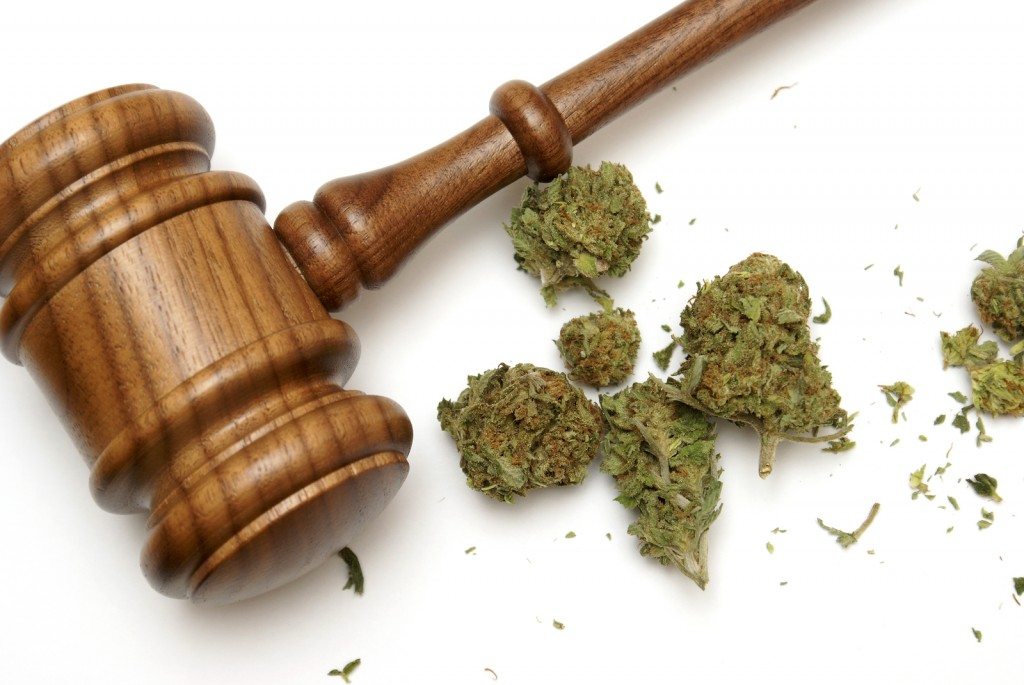In New Jersey, Distribution of Controlled Dangerous Substances and Possession with the Intent to Distribute Controlled Dangerous Substances are two of the most common allegations heard in Superior Courts across New Jersey. Both crimes are codified at N.J.S.A. 2C:35-5.
What is Possession of a Controlled Dangerous Substance with Intent to Distribute in New Jersey?
New Jersey like the other 49 states has made it illegal for a person to possess certain drugs or what the New Jersey legislature calls controlled dangerous substances. Under the language of the New Jersey statute, (N.J.S.A. 2C:35-5):
Except as authorized by (statute), it shall be unlawful for any person knowingly or purposely … to possess or have under his control with intent to … distribute a controlled dangerous substance (or controlled substance analog).
In addition, New Jersey has included in the statute a charge for when a person intends to distribute these substances. In order for a person to be convicted of possession of a dangerous substance with intent to distribute the State must prove beyond a reasonable double that:
- There is a substance that was admitted into evidence is a controlled dangerous substance.
- The defendant possessed, or had under his/her control, the substance in evidence.
- The defendant, when he/she possessed or had under his/her control the substance in evidence, had the intent to distribute the substance in evidence.
- That the defendant acted knowingly or purposefully in possessing or having under his/her control with intent to distribute the substance in evidence.
The state must prove each of these elements beyond a reasonable doubt. A reasonable doubt has been defined as an honest and reasonable uncertainty in the juries’ mind about the defendant’s guilt after the jury has given full and impartial consideration to all of the evidence. A reasonable doubt may arise from the evidence itself or from a lack of evidence. It is a doubt that a reasonable person hearing the same evidence would have.

What are the Substances that are Considered CDS?
New Jersey has attempted to list various controlled substances into five schedules I through V. each of the schedules includes a list of substances. In addition to these schedules containing a list of substances, these schedules also correlate with the potential penalty a person might face.
The schedules are generally broken down as follows:
- Schedule I – The substance has a high potential for abuse and has no accepted medical use in treatment in the United States, or it lacks accepted safety for use in treatment under medical supervision. (N.J.S.A. 24:21-5)
- Schedule II – The substance has a high potential for abuse and has currently accepted medical use in the United States with severe restrictions. In addition, abuse of a Schedule II C.D.S. may lead to psychic or physical dependence. (N.J.S.A.24:21-6)
- Schedule III – The substance has a potential for abuse less than the substances listed in Schedule I and II and has currently accepted medical use in treatment in the United States. In addition, abuse of a Schedule III C.D.S. may lead to moderate or low physical dependence or high psychological dependence. ( N.J.S.A. 24:21-7)
- Schedule IV – The substance has low potential for abuse relative to the substances listed in Schedule III and has currently accepted medical use in treatment in the United States. In addition, abuse of a Schedule IV C.D.S. may lead to limited physical dependence or psychological dependence relative to the substances listed in Schedule III. (N.J.S.A. 24:21-8)
- Schedule V – The substance has low potential for abuse relative to the substances listed in Schedule IV and has currently accepted medical use in treatment in the United States. In addition, abuse of a Schedule V C.D.S. may cause limited physical dependence or psychological dependence relative to the substances listed in Schedule IV. (N.J.S.A. 24-21-8.1)
However, while the list of substances may be quite extensive, the New Jersey Legislature has concluded that distilled spirits, wine, malt beverages, tobacco and tobacco products are not considered to be controlled dangerous substances under this statute, but are regulated under another statute. If you have been charged with possessing a controlled dangerous substance with the intent to distribute then you are facing a potentially serious charge under both New Jersey and Federal law.

What are the Potential Penalties?
In New Jersey, Possession with the Intent to Distribute Controlled Dangerous Substances can carry some steep penalties and potentially even jail time. As noted above, there are separate schedules that each contains a list of substances, and these schedules also correlate to a potential punishment.
The general penalty for any person who violates any provision of the New Jersey Controlled Dangerous Substances Act when there is no specific penalty provided shall be guilty of a disorderly persons offense. This means that even if the substance you are charged with possessing does not fit into any one of the schedules you may still be charged with a disorderly persons offense.
Penalties vary according to the type and amount of CDS involved in the violation, as described below. (N.J. Stat. Ann. § 2C:35-10.)
- Crime in the third degree – Possessing any amount of a schedule I, II, III, or IV CDS incurs a fine of up to $35,000, at least three (and up to five) years in prison, or both.
- Crime in the fourth degree – Possessing any amount of a Schedule V CDS incurs a fine of up to $15,000, up to 18 months in prison, or both.
- Disorderly person offense – Using or being under the influence of any CDS not for the purpose of treating a sickness or injury (as legally prescribed by a licensed physician) incurs a fine of up to $500.
In addition to these charges, if you are found to be in possession of a controlled dangerous substance within 1000 feet of a school, a judge may impose additional fines and penalties.
New Jersey Criminal Defense Attorney for Drug Possession with Intent to Distribute Charges
If you’ve been charged with a drug crime in Atlantic County, Cape May County, Pleasantville, Egg Harbor Township, Absecon, Mays Landing, Somers Point, Brigantine, Ventnor Heights, Egg Harbor City or another area within New Jersey, the criminal defense lawyers of The Law Offices of John J. Zarych can help. To schedule a free and confidential criminal defense consultation, contact our New Jersey criminal defense attorneys by calling our offices in Northfield, Cape May Court House, Wildwood or Atlantic City at (609) 616-4956. Our attorneys stand-up for you and fight to protect your rights.







